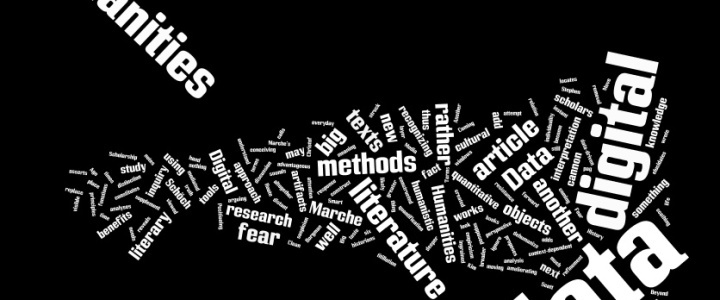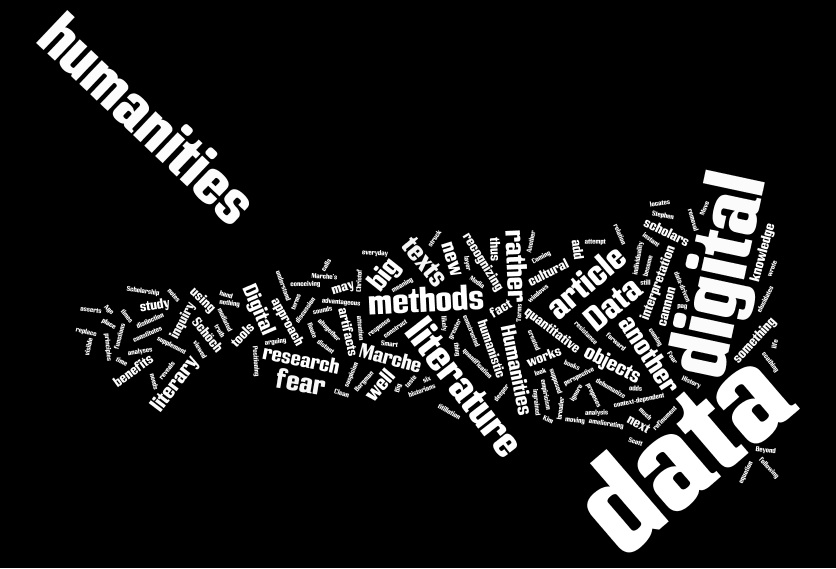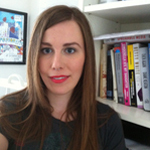On October 27, Kit Hughes will travel to Bethesda, Maryland for the 2014 IEEE International Conference on Big Data to report on Project Arclight’s progress to an audience of digital humanities researchers and project developers. Her presentation, “Scaled Entity Search: A Method for Media Historiography and Response to Critiques of Big Humanities Data Research,” will be part of the Big Humanities Data Workshop, which features six other winners of the Digging into Data Challenge, as well as several other significant large-scale digital humanities projects. Organized by Mark Hedges, Tobias Blanke, and Richard Marciano, the workshop will address the promises and pitfalls of working with big data to humanist ends. At the conclusion of the workshop, presentation slides will be distributed online and the paper from which Hughes developed her talk—co-written with Eric Hoyt, Derek Long, Kevin Ponto, and Anthony Tran—will be published as part of the conference proceedings.
Month: October 2014
Don’t Fear the Data: Coming to Terms with Data and Digital Humanities


In 2012, Stephen Marche wrote a scathing article about big data and digital humanities in the LA Review of Books, arguing passionately: “literature is not data.” Positioning digital humanities as nothing more than “instant titillation” and just another “next big thing,” he locates its fundamental problem as the attempt to treat literature like data. For Marche, literature is the antithesis of data and regarding it otherwise results in the removal of taste, value, distinction, and refinement, merely reducing the cannon to a stack of books. Clearly, a digital humanities approach to literature has struck a chord with Marche, and his article may be representative of a deeper fear of data, the quantification of literature and other objects of study, as well as the broader digital humanities altogether. But perhaps he is misguided in his approach to the digital humanities, distracted by its supposed shortfalls rather than recognizing its benefits. In his article “Big? Smart? Clean? Messy? Data in the Humanities,” Christof Schöch similarly notes the suspicion of data and quantitative methods from scholars. He connects this distrust to “the apparent empiricism of data-driven research in the humanities [which] seems at odds with principles of humanistic inquiry, such as context-dependent interpretation” (n. pag.). How can we jettison this fear of data in the humanities and maintain the critical analytical stance we value?
Kim Crawford’s six myths of big data may be an apt place to start. Crawford calls attention to the fact that big data is not new but rather has become more ingrained in everyday life, making it more visible and harder to ignore. Moreover, she illuminates how data is something that is created and imagined, not an objective truth or “fact,” and thus, it always needs to be contextualized. In his response to Marche’s article, Scott Selisker emphasizes how data is not something that is likely to replace the interpretation of individual texts or to “dehumanize” literature (or other cultural artifacts), but can supplement and strengthen such analyses. He asserts: “They don’t threaten the individuality of literary works, but rather help us return to those literary works with more information at hand” (n. pag.). Taking into account the great mass of ephemeral texts, objects, sounds, and moving and still images that fall outside the cannon poses significant methodological challenges. Utilizing digital tools and methods, and thus coming to terms with data and quantitative research, may be one such direction, assuming one pays head to Crawford’s cautions. When we shift our perspective toward conceiving distant reading, data, and digital methods as potentially advantageous rather than an encumbrance to analysis, we can begin to understand how such methods might uncover new forms of knowledge and pose new research questions. As Christine Borgman elucidates in Scholarship in the Digital Age, recognizing the importance of data is much more than a digital issue. It is a theoretical, methodological, and social one as well.
Another way of ameliorating the fear of data is by gaining a greater grasp of what constitutes data. Schöch proposes the following definition:
Data in the humanities could be considered a digital, selectively constructed, machine-actionable abstract representing some aspects of a given object of humanistic inquiry. Whether we are historians using texts or other cultural artifacts as windows into another time or another culture, or whether we are literary scholars using knowledge of other times and cultures in order to construct the meaning of texts, digital data add another layer of mediated into the equation. Data (as well as the tools with which we manipulate them) add complexity to the relation between researchers and their objects of study.
Understanding what data is, how it functions, what its limits are, and what it reveals can be viewed as the first steps towards meaningful engagement with data and digital humanities. For a more detailed discussion of the benefits of digital methods and data visualization, look to my next article: “Why Digital Humanities? 12 Reasons for Media Historians.”
Works Cited
Borgman, Christine. Scholarship in the Digital Age: Information, Infrastructure, and the Internet. Cambridge, Mass: MIT Press, 2007.
Crawford, Kim qtd. in Quentin Hardy. “Why Big Data is Not Truth.” The New York Times. 1 June 2013. Web.
Marche, Stephen. “Literature is not Data: Against Digital Humanities.” LA Review of Books. 28 Oct. 2012. Web.
Schöch, Christof. “Big? Smart? Clean? Messy? Data in the Humanities.” Journal of Digital Humanities 2.3 (2013): n. pag. Web.
Selisker, Scott. “The Digital Inhumanities?” “Two Rebuttals to ‘Literature is not Data: Against Digital Humanities.’” LA Review of Books. 5 Nov. 2012. Web.
Charlotte Fillmore-Handlon

Charlotte Fillmore-Handlon is a PhD Student in the Humanities Program in the Centre for Interdisciplinary Studies in Society and Culture at Concordia University. Working in and across English, Communication Studies, and Sociology, Charlotte is interested in popular culture, celebrity and fan culture, literary celebrity, and media theory. Her doctoral research explores how celebrity phenomena are constituted through various discourses that circulate through culture via diverse media channels, investigating what these discourses (and the tension between them) can tell us about the changing constitution of celebrity in Québec, Canada, and beyond our national borders. To do so, she will develop an interdisciplinary analysis of the phenomenon of Leonard Cohen across several decades, arguing that it is no longer possible to consider the literary in isolation from popular culture at large; being a Canadian writer is now inextricable from aspiring to some form of celebrity. Charlotte was the recipient of a Faculty of Arts and Science Graduate Fellowship (2011-2014) and her paper “One by One, the Ghosts Arrive: Celebrity Circulation and Bootleg Aesthetics in I am a Hotel” received an honorary mention for Best Graduate Student Paper at the 2014 Popular Culture Association of Canada Conference. She has written two journal articles, “Between the Fields: Interdisciplinary Humanities Research,” published in Inquire (3.2 (2014)) and “The Modern Life of an Ancient Text: The Gospel of Nicodemus in Manitoba” co-written by Zbigniew Izydorczyk in Apocrypha (21 (2010)). She has also written about her research at amplab.ca. For Project Arclight, Charlotte will write for the Arclight website and will be involved in organizing the Symposium, which will take place at Concordia University on May 13-15, 2015.
Rachel MacNeill

Rachel MacNeill is a second year Master of Arts in Media Studies student at Concordia University. She was awarded the Graduate Fellowship for Ethnic Studies and Society Diversity from Concordia University Faculty of Arts and Science (2013-2014). Her current projects include an analysis of depictions of racialized youth in contemporary Canadian news media and participatory action research with indigenous girls in the Northwest Territories. As a team member of Project Arclight, MacNeill will be contributing to digitizing and archiving historical newspapers and magazines for Arclight’s new web-based research tool as well as research and writing for the Arclight website and symposium.